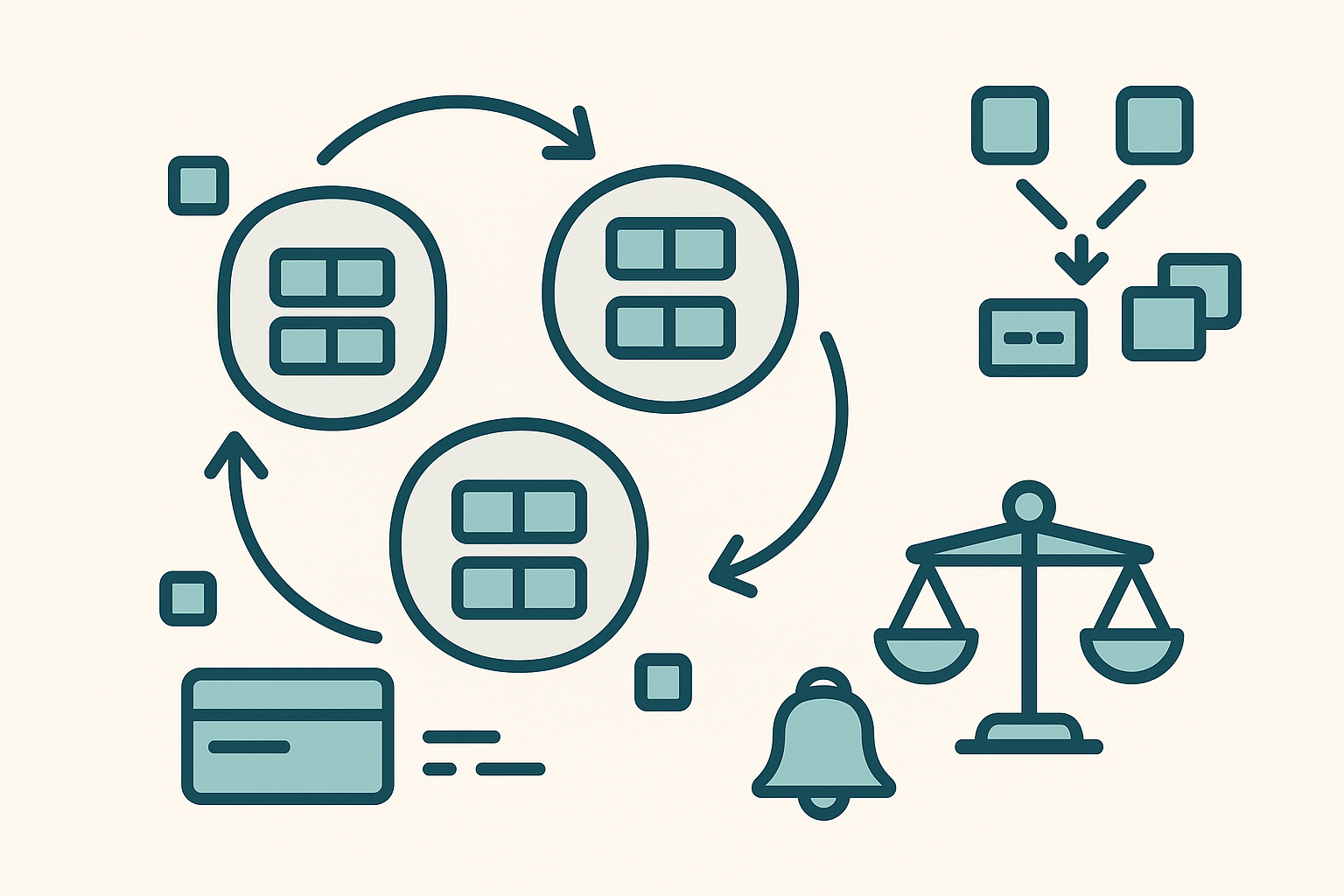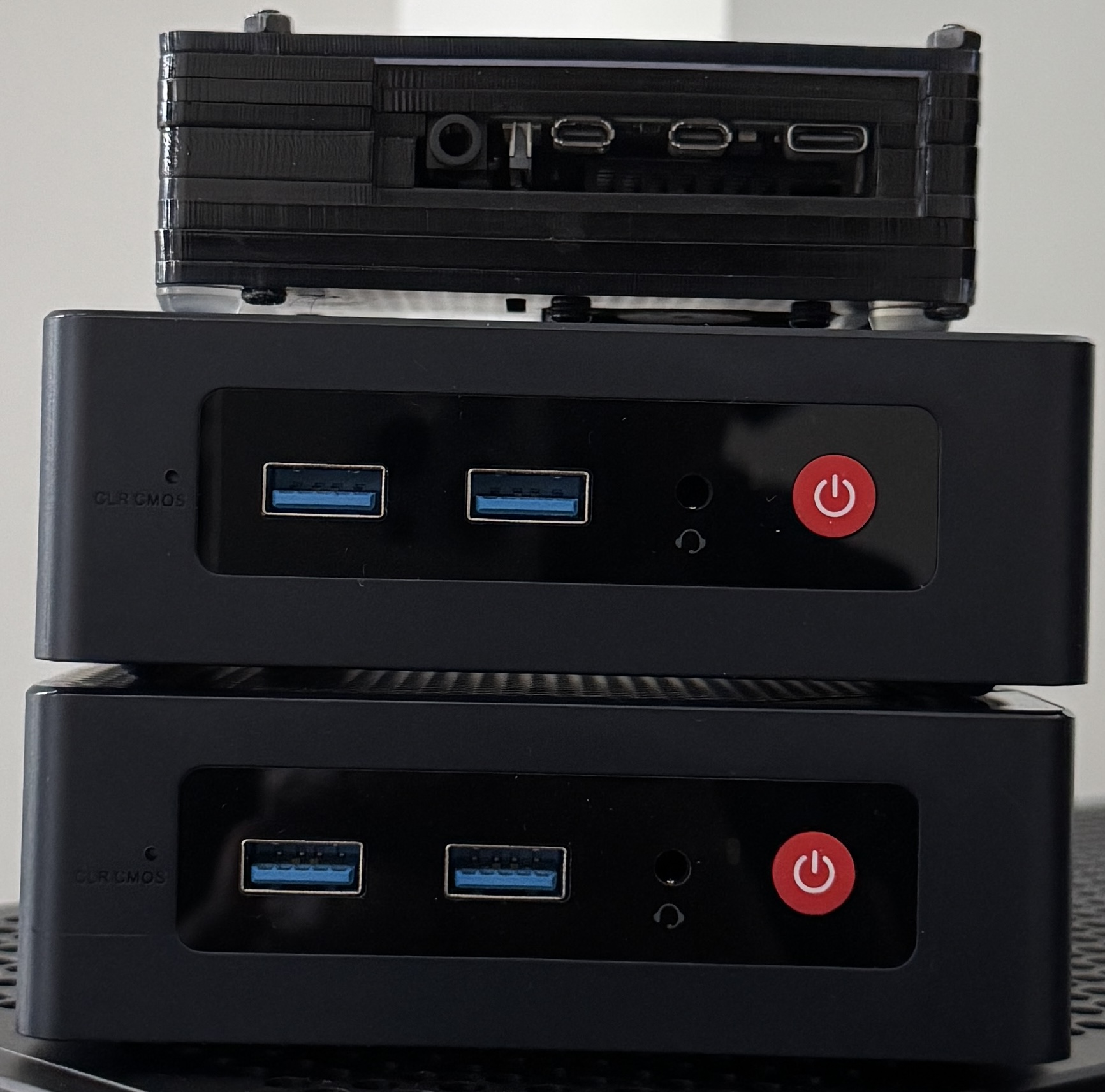Raspberry Pi
Control plane node
Reliability of cluster coordination, consistent availability of the API server, and maintaining overall system health.
The Raspberry Pi serves as the control plane of the cluster. It oversees orchestration, scheduling, and state management, ensuring that workloads are distributed efficiently across the worker nodes. Despite modest hardware, it provides the central intelligence that keeps the system operational.
Lightweight but critical, the Pi handles Kubernetes control functions while offloading heavy workloads to stronger nodes.
Beelink NUC
Cluster Worker Node
Running container workloads with high performance and reliability.
The NUC provides the compute and memory capacity for APIs, databases, and services that require more power than the control plane can deliver.
Handles the heavy lifting of distributed workloads, ensuring throughput, scaling, and responsiveness.
Beelink NUC 2
Cluster Worker Node
Balancing workloads and maintaining even distribution across the cluster.
This node complements its twin by focusing on load balancing and redundancy, ensuring no single machine becomes a bottleneck.
Keeps services responsive under shifting demand by absorbing overflow traffic and maintaining stability.




